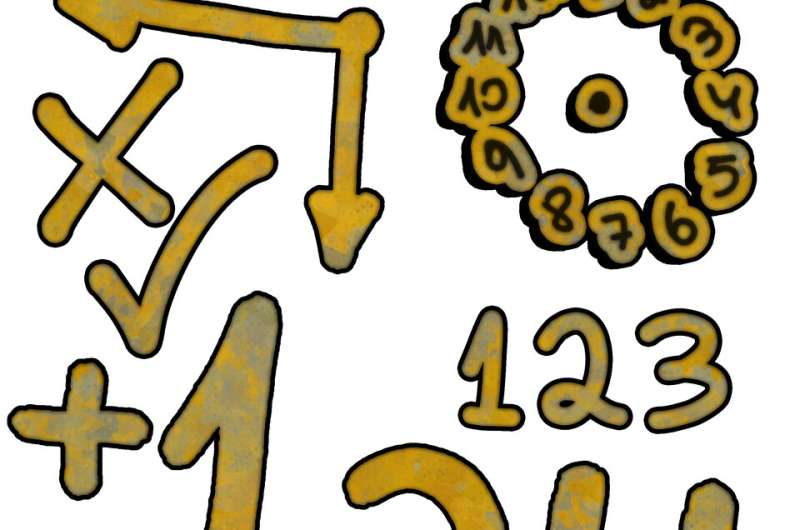
It turns out that everyone has what it takes to do maths. In a new study published in Current Biology last week, scientists identified neurons in the brain that fire specifically for different math operations. There is one set that lights up during additions, and another during subtractions.
What’s more, the neurons activate regardless of how the operation is signaled to the brain — whether it is through symbols or through written instructions. Previously, math calculations have remained a mystery — more specifically, we know that we can do this, but we didn’t exactly know what happened in our brains while we did this.
The study included five women and four men, and researchers attached electrodes to their brains’ temporal lobes to study neural activity. While performing arithmetic tasks, the electrodes picked up neural activity from specific neurons — more significantly, different ones were involved for different tasks.
“For example, when subjects were asked to calculate ‘5 and 3’, their addition neurons sprang back into action; whereas for ‘7 less 4,’ their subtraction neurons did,” Esther Kutter, one of the study’s authors, told Science Daily.
The implications are significant — it means that we come prewired to perform mathematical calculations, and that our brain cells come encoded with these specific instructions.
The new research also expands our understanding of which parts of the brain are involved in mathematical calculations. While previously considered the domain of the prefrontal lobe alone, the temporal lobe is also implicated in these new findings. The neurons themselves were dubbed “rule-selective” neurons, for the way in which they responded only to specific arithmetic rules.
We’ve known for a while that brain geography matters for someone’s ability to perform specific mathematical tasks. While multiple regions of our brains are simultaneously involved in cognitive tasks, “It’s about multiple regions working in concert. The better they work in concert, the more essentially they speak to each other, the stronger the gains in numerical abilities,” according to a neuroscientist Daniel Ansari, who was commenting on a pervious study.
Moreover, previous studies have highlighted how understanding more about how our brains work can help us address neurodevelopment problems better, according to researchers. Studies like these, in other words, aren’t meant to be deterministic.
Further, past research has also corroborated the fact that different types of math use different parts of the brain. With the help of fMRI scans, many studies have tried to understand what exactly happens in someone’s brain while performing math, this is one of the first to pinpoint the exact neurons involved. The more we know about how our brains do maths, the more we can fine-tune how we teach math to children.
An MIT study, for instance, inferred that rote arithmetic learning doesn’t enrich mathematical intuition, because they don’t involve the parts of our brain that are specifically designed to develop what scientists have called the “number sense.”
Moreover, bilingual children may also take time switching from the language of instruction to their native language while performing math, the MIT study warns. Overall, many studies together show that all children possess the means to encode mathematical instructions; how they are relayed may thus matter.
“This study marks an important step towards a better understanding of one of our most important symbolic abilities, namely calculating with numbers,” Florian Mormann from the University Hospital Bonn and first author of the present study, said.
3rd Edition of International Conference on Mathematics and Optimization Methods
Website Link:https://maths-conferences.sciencefather.com/
Award Nomination: https://x-i.me/XU6E
Instagram: https://www.instagram.com/maths98574/
Twitter: https://twitter.com/AnisaAn63544725
Pinterest: https://in.pinterest.com/maxconference20022/
#maths #numericals #algebra #analysis #analysis #mathmatics #numericals #number #complex #graphics #graphs
Website Link:https://maths-conferences.sciencefather.com/
Award Nomination: https://x-i.me/XU6E
Instagram: https://www.instagram.com/maths98574/
Twitter: https://twitter.com/AnisaAn63544725
Pinterest: https://in.pinterest.com/maxconference20022/
#maths #numericals #algebra #analysis #analysis #mathmatics #numericals #number #complex #graphics #graphs

No comments:
Post a Comment